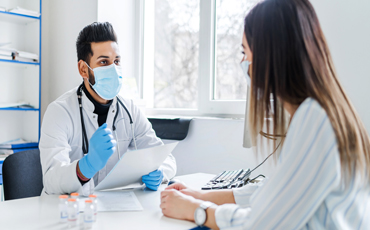THE ART OF CLINICAL PRACTICE
Practical clinical exposure plays a vital role in the education and training for every medical graduate but especially homeopathic graduates, surpassing the importance of theoretical knowledge alone as the founding principles of homeopathy were based on evidence and practicality like human drug proving, clinical material medicas etc. While theoretical knowledge provides a foundation for understanding medical concepts, practical clinical exposure offers unique benefits that contribute to the overall competence and preparedness of medical professionals. Here are several reasons why practical clinical exposure is more important than theoretical knowledge for homeopathic graduates.
Firstly, practical clinical exposure allows homeopathic graduates to apply their theoretical knowledge in real-life patient scenarios. While theoretical learning provides the necessary information and understanding of diseases, diagnoses, and treatment plans, practical experience is essential for translating that knowledge into effective patient care. By directly interacting with patients, homeopathic graduates learn to assess symptoms, make accurate diagnoses, and develop appropriate treatment strategies. They also witness the complexities of healthcare delivery, including considerations such as patient communication, teamwork, and ethical decision-making, which cannot be truly understood solely through theory
Additionally, practical clinical exposure enhances homeopathic graduates' critical thinking and problem-solving skills. In a clinical setting, doctors are faced with unique challenges and situations that require the ability to think on their feet and adapt quickly. Conversion of local language into symptoms of material medica and rubrics can only be excelled in practical clinical settings.Also, Practical exposure exposes them to diverse patient cases, each presenting its own complexities and variations, encouraging them to analyze, evaluate, and apply their knowledge to each individualized case andreach informed decisions. This experience sharpens their clinical judgment and instills confidence in handling complex scenarios, a skill that cannot be adequately developed through theoretical learning alone.
Furthermore, practical clinical exposure grants homeopathic graduates the opportunity to witness the emotional and psychological aspects of patient care. Medical practice is not solely about diagnosing and treating diseases; it also involves understanding and empathizing with patients. By spending time in clinical settings, homeopathic graduates gain insights into the impact of illness on individuals and families, as well as the importance of good communication, trust, and compassion in delivering healthcare. These invaluable experiences cultivate the essential bedside manner and humanistic qualities that patients appreciate and benefit from, enhancing the doctor-patient relationship and overall patient satisfaction. Learning patient psychology and subtle meanings of patients concern and body language can only be achieved in practical clinical scenario.
Practical clinical exposure also exposes homeopathic graduates to the realities and practicalities of the healthcare system . They gain firsthand experience in navigating hospital workflows, collaborating with interdisciplinary teams, and understanding the resource constraints and administrative challenges that healthcare professionals face. Homeopathic graduates learn to manage cases along with other system of medicines not taught in theory. Identifying Artificial Chronic Diseases, understanding the concept of symptom intensity , eliminative symptoms or rubrics can only be learned in practical case exposure.This exposure prepares them to function effectively in the healthcare environment, ensuring a smooth transition from medical education to practice. Understanding the practical aspects of healthcare delivery is crucial for homeopathic graduates to provide efficient, effective, and patient-centered care.
Moreover, practical clinical exposure helps homeopathic graduates develop professional skills and competencies that are not explicitly taught in a lecture hall. These include effective communication and interpersonal skills, teamwork and collaboration, time management, and medical documentation. Practical experience enables homeopathic graduates to refine these skills over time, leading to better patient outcomes and enhanced professional growth. Additionally, direct interactions with patients and healthcare professionals allow homeopathic graduates to observe and learn professional behavior and ethical principles directly and develop their own professional identity.
In conclusion, while theoretical knowledge forms the foundation, practical clinical exposure is undeniably more important for homeopathic graduates. It bridges the gap between theory and practice, enabling medical professionals to apply their knowledge, hone their skills, and develop the practical competencies crucial for successful homeopathic practice. The hands-on experience gained through clinical exposure enhances critical thinking, problem-solving abilities, decision-making skills, and professional development, ultimately shaping well-rounded and competent doctors.



